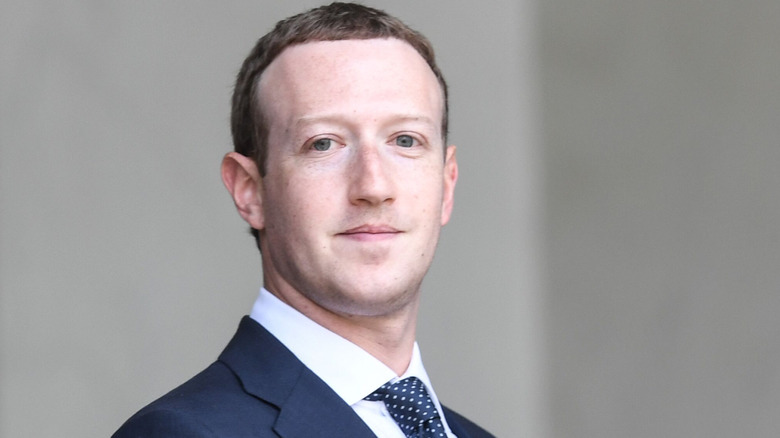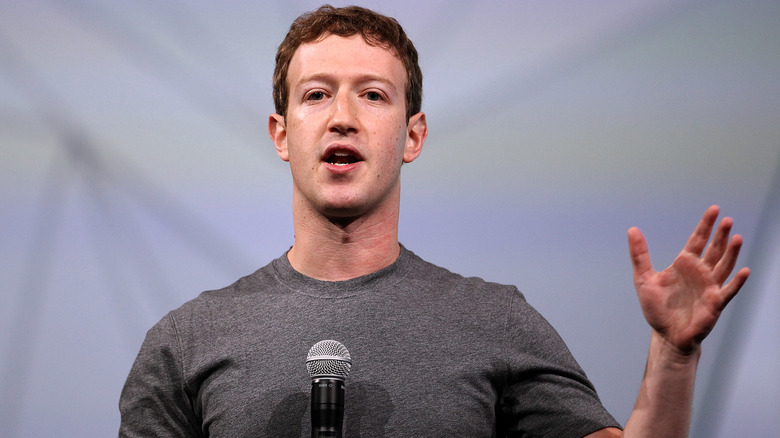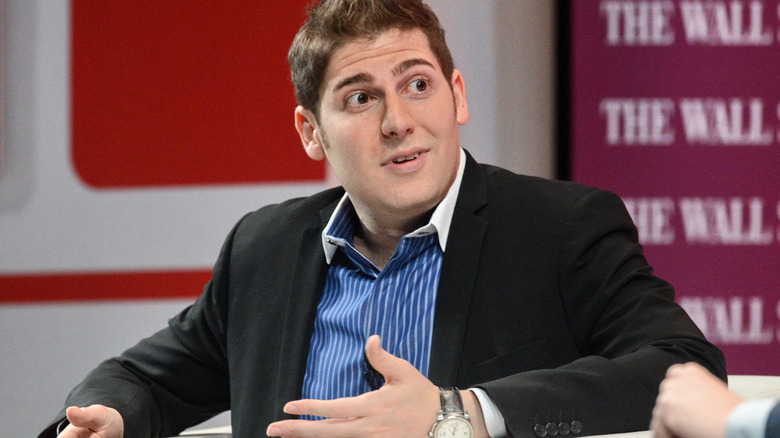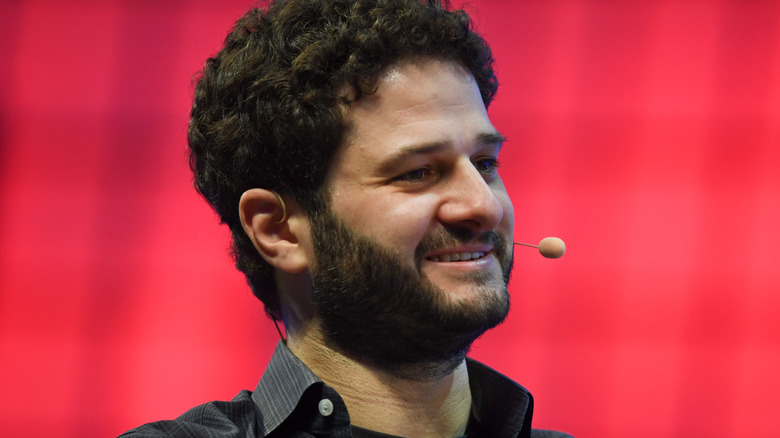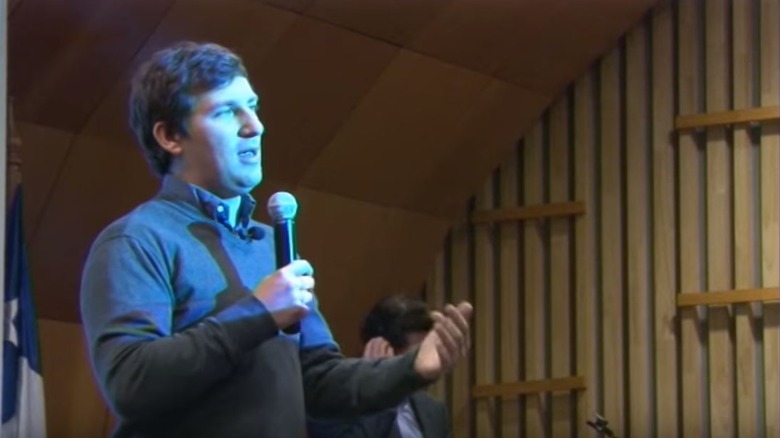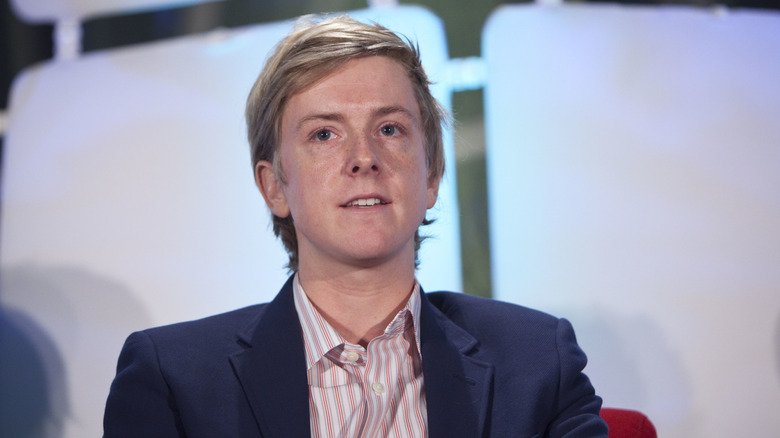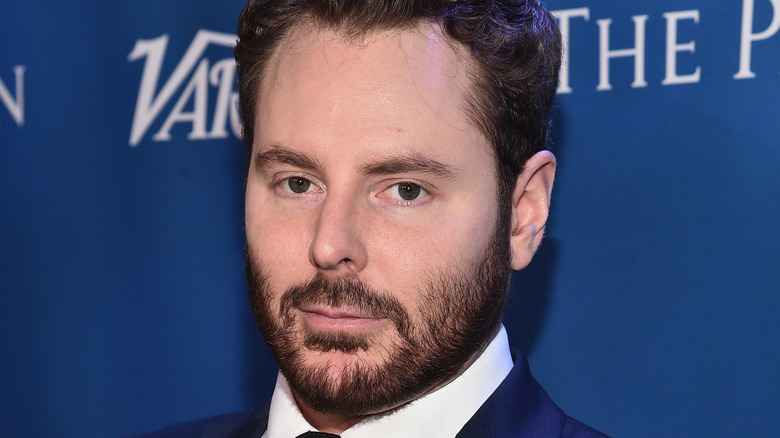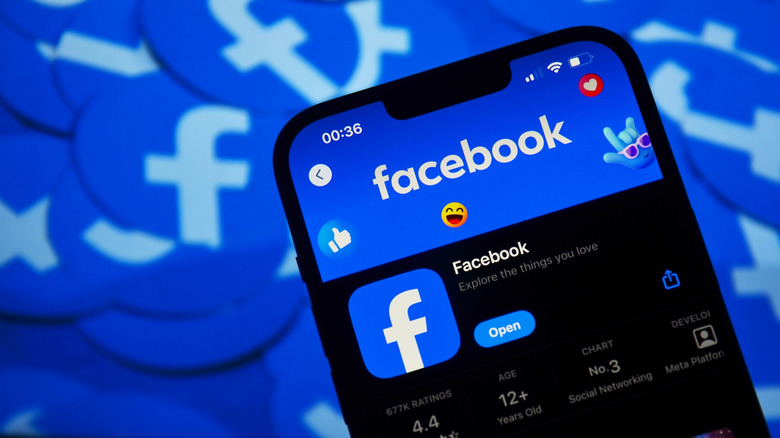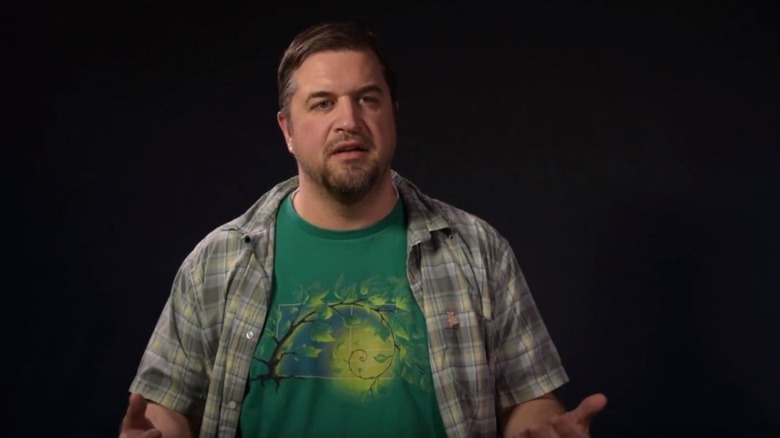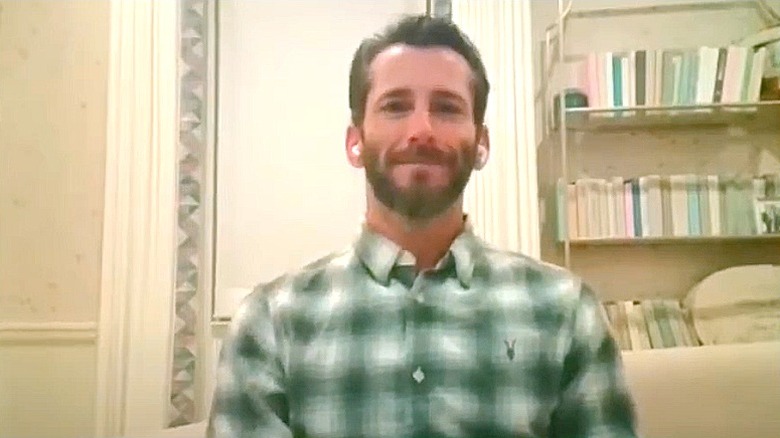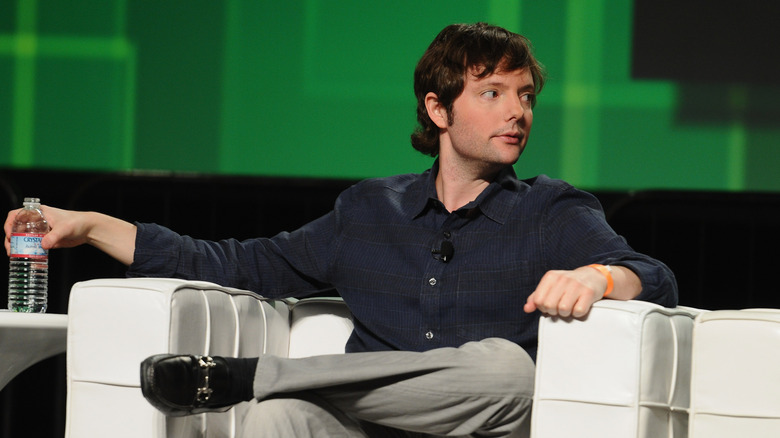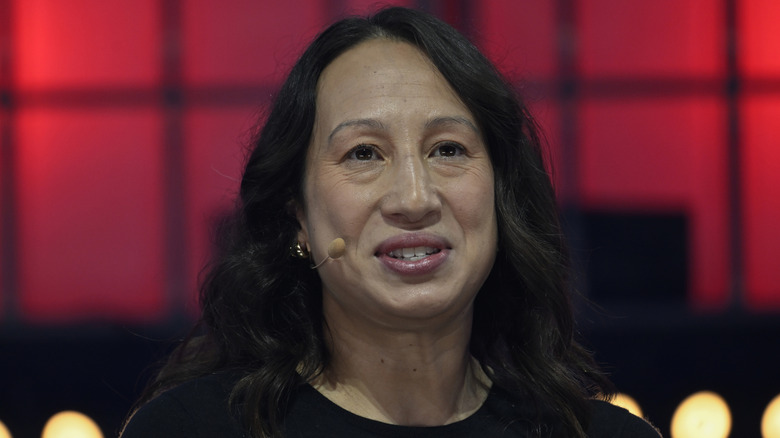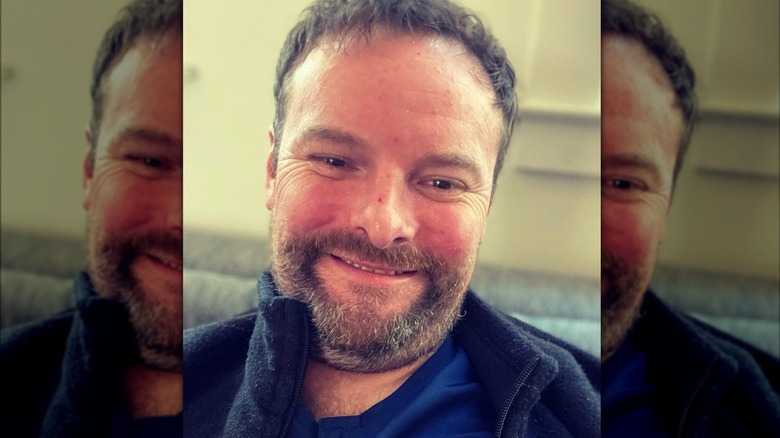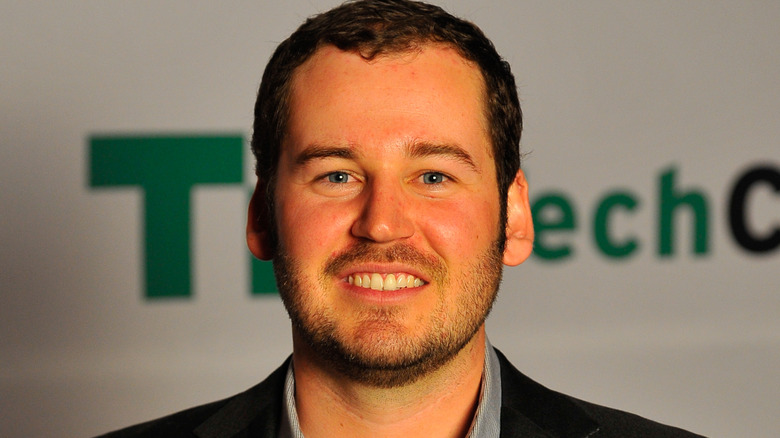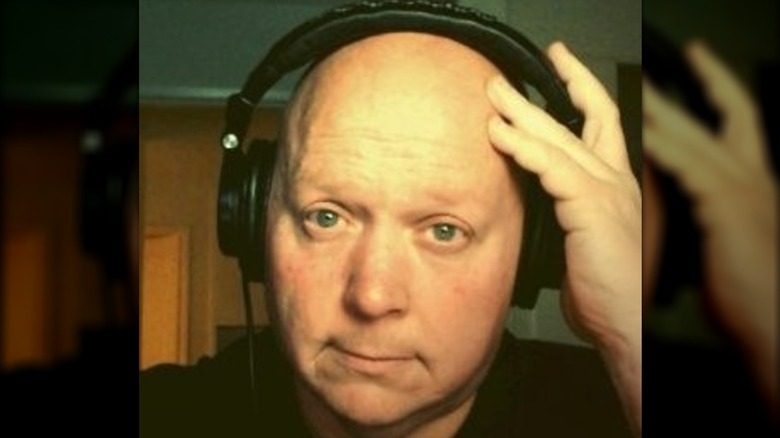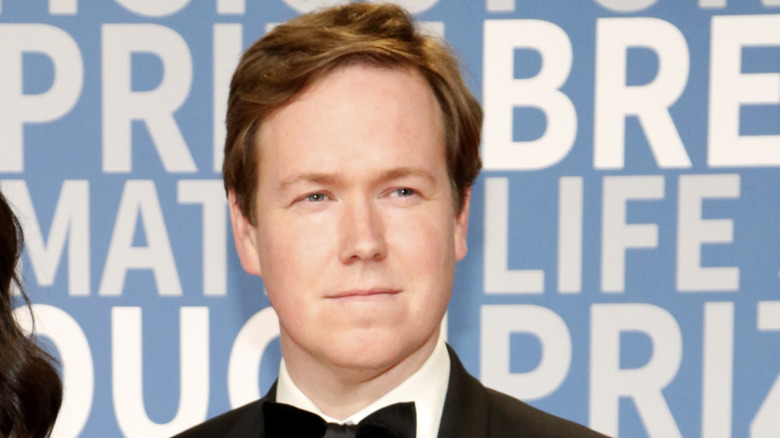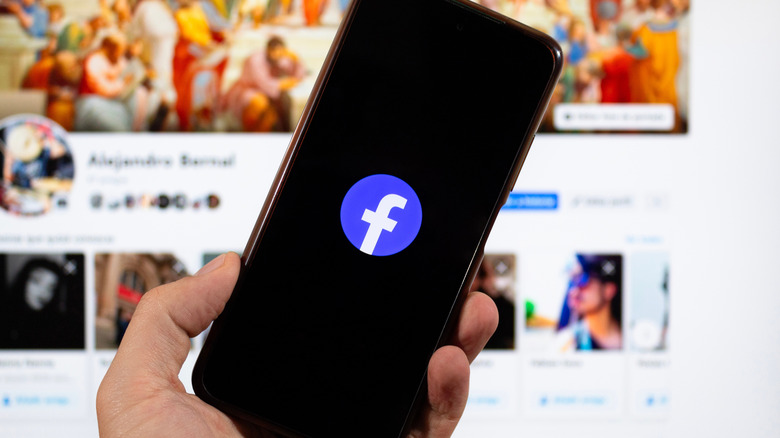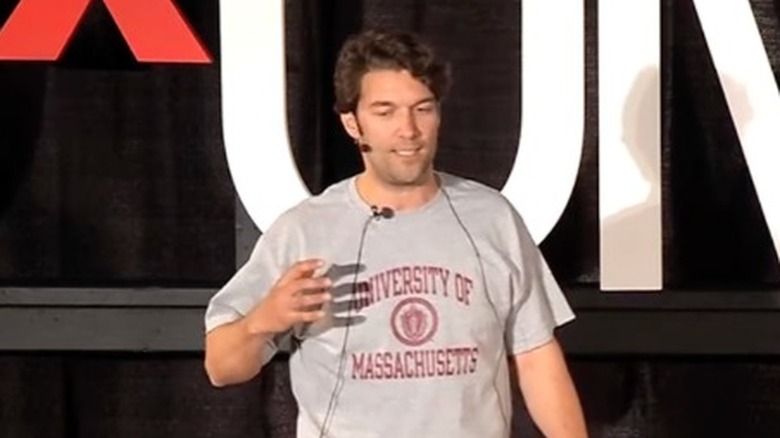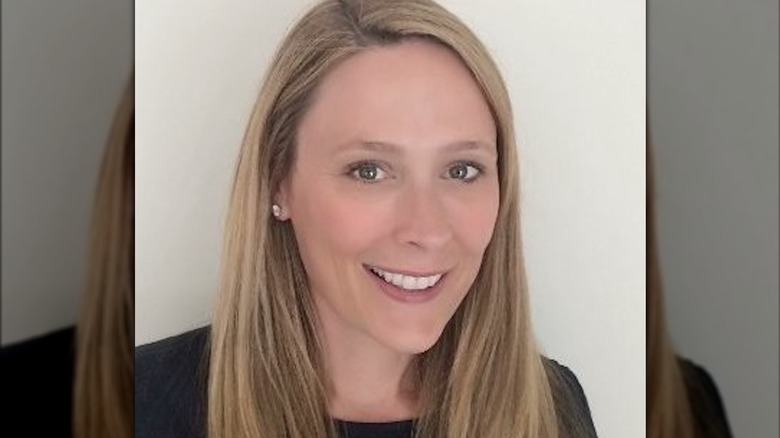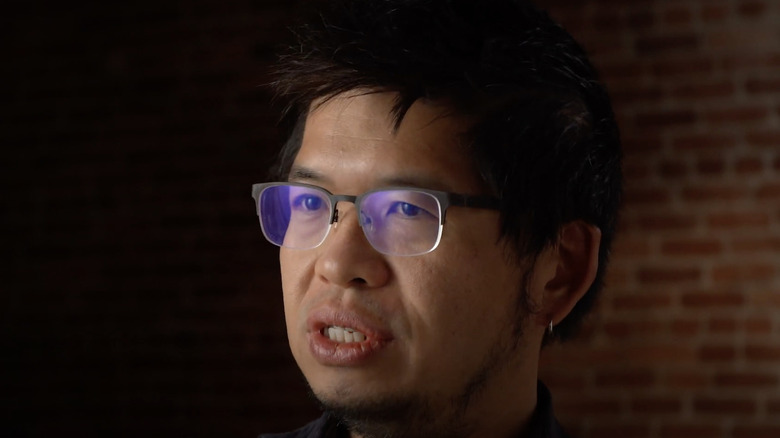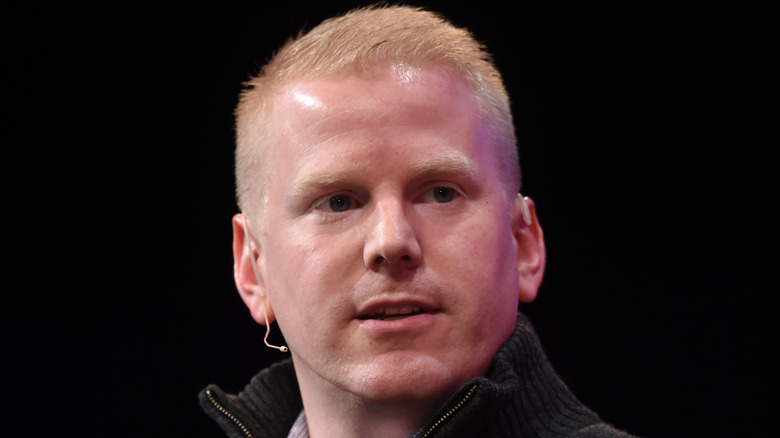Where Facebook's First 20 Employees Are Now
Ah, Facebook. Love it or hate it, it's probably part of your life. That familiar timeline of daily updates has been connecting you to distant family members — or tearing apart your friendships over political memes — for more than 20 years. Facebook's world dominance has been cracking thanks to a string of controversies and the rise of other platforms, but it'll probably be a while before the definitive social network stops being intertwined with your daily routine.
Back in 2004, though, the world of friend requests and status updates was still new territory. MySpace was the king of social media, Mark Zuckerberg was just a bright kid at Harvard, and few could have foreseen the giant blue juggernaut that "The Facebook" would one day become. Zuckerberg usually gets all the credit, but there were a number of other Facebook co-founders who made the strange project come alive. While pinpointing these first 20 Facebook folks can be a bit tricky, the following people definitely hopped on the train early — and they've come a long way in the years since.
Mark Zuckerberg
Well, yeah. Everybody knows this guy. The king of social networks is a major celebrity, but a surprisingly private one, with a lot of personal details he keeps on the down-low. For example, his altruistic message of how Facebook "connects the world together" sounds nice, but it's a far cry from the 19-year-old Harvard student who bragged over instant messenger that over 4,000 "dumb f***s" had sent him their private pictures, addresses, and emails.
Intentions aside, there's no question that Mark Zuckerberg is a seriously gifted guy — a child prodigy who created programs resembling AIM and Pandora in his spare time (before either service existed!), until coming to Harvard, developing The Facebook, dropping out of school, changing the world, and feuding with Elon Musk.
Facebook is Zuck, and Zuck is Facebook: Even the classic blue-and-white color scheme is based on his red-green colorblindness. His success is indisputable, but he's had some rough times, having been forced to spend the entirety of 2018 apologizing as headlines about election interference, fake news, and user privacy concerns kept on coming, with a Senate hearing in April of that year being an especially low point in his company's history. It's hard to say what's in store for Facebook, but it sure seems like Zuckerberg will be there for whatever happens.
Eduardo Saverin
If you saw the 2010 Aaron Sorkin-David Fincher film "The Social Network," you might remember Facebook's Brazilian-born cofounder, Eduardo Saverin. In case the details have gotten fuzzy, here's a refresher: Saverin — played in the movie by future Spider-Man Andrew Garfield — was the dude who got pushed out by Zuckerberg. While real life was messier than the Greek tragedy depicted in the movie, Saverin did make the initial investment to get Zuckerberg's project off the ground. He and Zuckerberg later fell into a dispute over funding, poor communication, and different advertising approaches.
Who was right, and who was wrong? Decide for yourself, but in the end, Zuckerberg cut Saverin from the company in 2005. Saverin sued, eventually resulting in a settlement. Despite it all, Saverin later claimed to have no beef with Zuckerberg, according to Forbes, even calling his former partner a "visionary."
Drama aside, Saverin made serious dough on Facebook, considering his initial $15,000 investment has now propelled him to billionaire status. In 2012, Saverin renounced his U.S. citizenship — which many have criticized as a tax dodge, though he claims otherwise — and he now lives in Singapore. More recently, he teamed up with Raj Ganguly to found B Capital Group, a venture capital firm that invests in tech startups focused on health care, insurance, financial services, and so on.
Dustin Moskovitz
Back when Mark Zuckerberg was in the dorms, a guy named Dustin Moskovitz was his roommate. Moskovitz hopped aboard the Facebook train right away, dropping out of Harvard and becoming Facebook's first CTO. He kept riding for about four years, before going off in 2008 to do his own thing. Since then, he has co-founded Asana, a team workplace application that helps coworkers collaborate, assign tasks, and so on. While working as Asana's CEO, Moskovitz, along with his wife, also dedicated a huge amount of their resources to philanthropy, founding the organization Good Ventures — which funds vaccine programs and animal welfare initiatives — as well as the Open Philanthropy Project.
So how does he feel about Facebook today in light of the recent controversies? Well, he's not talking. When Business Insider poked a little in 2018, he brushed the whole thing aside, saying he was too busy working on Asana to think about Facebook anymore.
Andrew McCollum
Back in 2004, a computer science major named Andrew McCollum's friend Mark Zuckerberg made a request, according to Mashable, which was a little outside his wheelhouse. As McCollum tells it, Zuck's "The Facebook" project was badly in need of a logo, graphics, and a general design scheme, and for whatever reason, Zuckerberg felt his buddy was the man for the job. Despite McCollum's earnest pleas that he wasn't a graphic designer, Zuckerberg insisted, so McCollum crafted a blue logo and design scheme that, to this day, has inspired every subsequent Facebook revamp.
McCollum became a big part of Facebook's early days when the company's base of operations was a college party house with a zipline going to the pool. Tech startups usually require each crew member to wear a lot of different hats, and depending on the day, McCollum did everything from design work to engineering tasks. Though he had fun with Facebook, he eventually decided to move on, go back to Harvard, and build some companies of his own. Some of the projects he has since been involved with include Jobspice, a resume-building service, and the TV streaming company Philo.
Chris Hughes
When you ask many hugely successful people how they achieved their goals, they'll usually sell you some silly platitudes about hard work, bootstraps, and so on, but not Chris Hughes: Unlike so many of his contemporaries, this small-town kid from Hickory, North Carolina, is stunningly cognizant of the advantages and coincidences that led to his fortune as a Facebook co-founder, and CNBC writes that he's unafraid to call Facebook "a lucky break." Since leaving Facebook, Hughes has never rested on his laurels, instead dedicating the majority of his time toward finding solutions for the systemic problems wherein a bunch of lucky kids can accidentally make billions of dollars, while countless working-class students struggle beneath insanely expensive student loans.
Hughes began his career as a political agent for social change in 2008, when he joined the first presidential campaign of an Illinois senator named Barack Obama. Hughes was one of the major figures who pioneered Obama's unprecedented reach into social media, the digital world, and younger voters, by launching and managing the social network My.BarackObama.com. Since 2012, Hughes has pivoted away from presidential elections and moved deeper into broader systemic revolutions, as one of the leaders of the Economic Security Project. This organization, co-founded with Natalie Foster and Dorian Warren, is dedicated to supplying resources and funding toward the goal of a universal basic income, which would provide a guaranteed regular income to adults across the United States.
Sean Parker
If you don't know Sean Parker, you know his work. In addition to being one of the co-founders of Napster — the service that angered the entire music industry and changed it forever — Parker is the guy who saw the earth-shattering potential in The Facebook. Once Parker met with Zuckerberg, their future partnership was sealed. Parker propelled the website to new heights, helped the young entrepreneur learn the ropes of Silicon Valley, and was appointed Facebook's first president. According to Domain.me, Parker was also the one who suggested that Zuck and crew drop the "The" part of the name, and simply go with "Facebook."
Parker's time with Facebook ended after he was arrested on suspicion of cocaine possession — charges were never filed — but this brief stint made him a fortune. Since then, Parker has continued throwing himself into cutting-edge technological companies, with his most notable example being his decision to invest in Spotify in 2010. Yes, the co-creator of Napster funded Spotify. Weird world, right? Parker is also the head of the Parker Foundation, a charity that has donated millions to the cause of cancer immunotherapy.
Despite all the money Parker made from Facebook, he's no longer a fan of it. As he told Axios, "God only knows what [Facebook's] doing to our children's brains."
James Pereira
Many great stories have a mystery man, and when it comes to the tale of Facebook, the masked figure is a fellow named James Pereira. As one of Facebook's first employees, who worked as an engineer from 2004 to 2007, you'd think he'd have a couple interviews out there, maybe a tech company or two, or perhaps a charitable foundation, but nope. It seems Pereira has dropped off the face of the Earth.
An internet search turns up a blog in his name, which is something. But since the blog in question hasn't been updated since 2011, maybe that's going too far back for contemporary relevance. However, Mic reported in 2014 that Pereira was living in Portland, Oregon. It sounds like the guy wants to live a quiet post-Facebook life, and hey, there's no problem with that.
If it's ever revealed that one of the Facebook founders is going out at night and arresting criminals in a bat costume, though ... this is probably the one.
Taner Halicioglu
Referred to by Business Insider as Facebook's "first 'real' employee," Taner Halicioglu is the guy who developed the hardware infrastructure that allowed Facebook to absorb such colossal growth. He stayed on until 2009, at which point he became a lead reliability engineer for Blizzard Entertainment, the company behind mega-successful games like "Diablo" and "World of Warcraft." A few years later, in 2013, he signed up at his alma mater, U.C. San Diego, as a lecturer in computer science. No word on whether his class had a Facebook group or epic class-wide MMORPG sessions, so it's probably better to presume not.
These days, San Diego Business Journal calls Halicioglu one of the city's "super angels" for investing in local early-stage tech startups. His loyalty to U.C. San Diego never diminished, and in 2017 he donated a full $75 million to the university to name a new building after him. His goal, through the donation, was to make the campus one of the nation's top places for data science.
Ezra Callahan
Most of the early Facebook crew came aboard due a direct connection to Mark Zuckerberg, but Ezra Callahan was a roommate of Sean Parker.
Callahan worked at Facebook from 2004 to 2010 as a manager of internal communications and a product manager. Following his years making millions at the big blue F, Callahan went south to the sunny shores of Los Angeles, where he co-founded Artist & Recreation, a real estate and hospitality group that turned LA's historic Regent Theater — a building over 100 years old — into a live music venue capable of holding 1,000 audience members. After this success, Callahan co-founded Arrive Hotel and Restaurants, a company focused on developing low-key luxury hotels, restaurants, and so on. In 2011, he became a principal of FuzzRock Projects, a hospitality and real estate development firm. Currently living in Pasadena, Callahan also now has several children.
Matt Cohler
What do Facebook, LinkedIn, Uber, and Dropbox have in common? Okay, there are a lot of ways you could answer that question. But here's one: a guy named Matt Cohler.
Cohler's legacy as a founding member and former vice president of both Facebook and LinkedIn, as listed on his LinkedIn page, would be impressive enough on its own, but his post-Facebook career has been even more lucrative. Cohler joined up with the Silicon Valley venture firm Benchmark Capital in 2008 after the company spent some time pursuing him. You might have never heard of Benchmark Capital, but you've definitely heard of some other little companies Benchmark funded after Cohler joined as a managing partner. They include names like Tinder, Snapchat, Instagram, and Uber, according to Deseret News. Because of Cohler's vast array of successful enterprises, he has often been called one of the most prescient investors in his industry.
In 2018, Cohler decided not to re-up his partnership at Benchmark, though he did choose to retain his board membership at Uber (despite the scandals that plagued the company), so it seems the ride-sharing industry is one he feels especially close to — or, perhaps, sees a big future in.
Naomi Gleit
In its initial incarnation, Facebook was a social network just for college students, as intended by Harvard undergrad Mark Zuckerberg. The first employees of Facebook, the company, were also relatively inexperienced and young. "A lot of us were college students building a product for college kids," Naomi Gleit told Morning Brew of the early makeup of Facebook. She worked as a marketing associate, her first job post-graduation, and then became a product manager focusing on growth.
Gleit then ascended to the position of head of product at Facebook's overarching company, Meta, after previously working as vice president of social good at Facebook, managing the social network and limiting damage to its moral standing and public reputation through various scandals. Through her longevity and loyalty at Facebook and Meta, she's become one of Zuckerberg's chief strategic advisers. As of 2025, Gleit still works at the company she helped build.
Gilles Mischler
With many years of network engineering experience to his name for the likes of Desktop Products, Senterprise, and Truveo, Gilles Mischler joined Facebook in 2005 as its SiteOps engineer. As the social network took form, it did so on the IT infrastructure that Mischler devised and then constructed. He also worked as the day-to-day operations engineer and managed a data center for the rapidly growing company.
Just under five years later, Mischler left his job engineering networks at Facebook to take on a similar position at Nokia, building datacenter networks for the telecom giant's Nokia Here system. When that job wrapped up, Mischler moved to France and went to work for himself as a networking consultant via Mischler & Compagnie, advising startups in building business-oriented systems. He returned to Silicon Valley to oversee corporate networking for the Dropbox file sharing service and then took on similar positions at WeWork, Pinterest, and Robinhood before employing his substantial wealth to be an angel investor for e-sports and digital marketing ventures.
Scott Marlette
Among the most well-known features of Facebook, and one that helped drive its early popularity, is the ability to share photos. Early versions of that feature were the doing of one of Facebook's first-ever employees, Scott Marlette. Toiling as both an engineer and a product manager, Marlette was an architect for the site's backend while also supervising the teams that designed in-site applications like Events, Groups, and private messages.
After he moved away from Facebook, Marlette used technology to address a significant social and economic issue: high prescription-drug prices. The engineer helped start up GoodRx, an app and system that applies digital coupons to lower the cost of pharmaceuticals. Marlette's involvement included helping build the site before he moved to the marketing side. While reportedly helping consumers save billions, his projects have led to extreme personal wealth for Marlette. After creating a venture capital fund, he spent $15 million on his home in Santa Monica, California.
Daniel Neff
Before landing at Facebook in 2005, Daniel Neff worked for some of the biggest consumer computing brands when the internet was new and novel to the general public. His jobs were primarily as a quality control advisor, engineer, and software release manager. Following stints at Macromedia, McAfee, and the pioneering social network Friendster, Neff was hired by Facebook just as it was coming along to supplant that very service and others. As a build and release engineer at Facebook, Neff turned the source code written by others into usable software. He apparently got the job done quickly, because he exited Facebook after six months.
Following some brief periods working for LinkedIn, Zazzle, and Renkoo, Neff joined Adobe in 2009, where he has worked on cloud computing and infrastructure management in a variety of capacities. Neff remains at Adobe as of 2025, carrying the title of senior principal cloud architect.
Aaron Sittig
Sean Parker, the first president of Facebook and a crucial advisor to creator Mark Zuckerberg, made some hiring decisions at the beginning of the internet company's existence. Upon Parker's recommendation, Zuckerberg hired Napster's Macintosh-centric engineer Aaron Sittig to be the company's design strategy lead in May 2005. It was his job to take new ideas for Facebook "products," or features of the platform, and make sure designers executed them in a timely fashion. Sittig later became a product architect, which found him devising the kinds of ideas he'd once helped realize.
After he left Facebook in December 2012, Sitting became a managing partner at an obscure San Francisco-area company called Public Studio. Neglecting to update his personal Facebook page since 2016, Sittig has moved into private life. According to the last iteration of his Facebook account, Sittig defined himself as "an Applied Generalist, building people networks."
Nick Heyman
When Facebook hired Nick Heyman in April 2005, it was growing so rapidly that it needed an industry veteran to work as its director of operations and manage its ever-expanding website traffic. Experienced in scaling up infrastructure for internet companies that experienced instant popularity, Heyman applied the services that he'd previously rendered at Friendster, Videoegg, and Zazzle at Facebook, then left the company in a matter of weeks.
Following his work at one definitively 2000s social network, Heyman went to another one, taking the spot of head of operations at X, back when it was known as Twitter, and the now-shuttered network games distributor Playdom. He no longer actively works in the tech sector but helps launch new companies in his capacity as an angel investor. ShopPad and PandaWhale are among the brands moved along with Heyman's funding.
Steve King
Previously a sales executive for YellowBook and Monster.com, Steve King was one of Facebook's first 20 employees, hired as the director of media sales for the then-small social media network in April 2005. Some of King's biggest accomplishments were bringing in Facebook's first major, high-spending advertisers that helped legitimize the network, such as Microsoft and Panasonic.
A bit under a year and a half later, King moved on to a job as the regional sales director for Dotomi, an advertising company that was absorbed by a competitor for $295 million during King's tenure. From 2007 to 2012, King was the vice president of sales for LocaModa, a social media network for digital advertising, then he became a partner at Second & Fourth, which is both a business advisory and capital investment organization. Six years as an investor led to King joining another fund that funnels money to new projects and companies, Stonefields.
Tricia Black
Tricia Black's 10 years of experience in sales, marketing, and client services in the communications area allowed her to join Facebook on an executive level upon hiring. The social media platform's initial vice president in charge of advertising sales, Black was Facebook's seventh employee overall (according to her LinkedIn page) and hired some of the other early employees, including the sales team, with whom she created and evolved sales and marketing approaches.
After one year and five months at Facebook, Black walked away in July 2006 with such ample financial resources that, for the better part of eight years, she operated as an independent investor as well as a consultant and advisor for hire for other tech businesses. In 2016 and 2018, she formally created two investment firms, acting as a partner in Victress Capital and then Amplifyher Ventures. The latter operates with the goal of providing women more entry points into business and technology, and to make the overall executive population of corporations more diverse.
Steve Chen
When Facebook went live in 2005 and continued to remain online as it became inundated with traffic, the company's engineers maintained calm. One of those initial hires was Steve Chen, a senior software engineer who'd just left college to work at PayPal. He left Facebook after just a few months, departing near the end of 2005.
Chen would wind up being associated with two internet companies with an even greater cultural footprint than his former employer. Toward the end of his time at the social media network, Chen and friend Chad Hurley attended a dinner party and discovered there was no easy way to share the short videos they'd captured at the event. Inspired by the photo-posting site Flickr, Chen and Hurley created the video site YouTube, thanks to $3.5 million in funding. YouTube hosted its first video in April 2005, and it was a household name by the fall of 2006 — right around the time when Google bought the property for $1.65 billion. Chen's personal net worth is in the $500 million range, and after Google took YouTube off his hands, he started a new tech company called AVOS.
Kevin Colleran
One of the final members of the first team of Facebook employees to tender his resignation, Kevin Colleran was an early signee, named head of global partnerships upon his official hiring in April 2005. Working out of offices on the East Coast, Colleran spent his six and a half years at Facebook doing things like drafting revenue and advertising plans as the website grew while also pursuing relationships with large companies from around the world so that they might partner with his employer or advertise with it. Colleran attracted Procter & Gamble, one of the most voracious advertising buyers on the planet. During his last two years at Facebook, all of his time was devoted to that client.
Colleran took a year-long sabbatical after leaving Facebook in 2011. He wrote about his experiences in the world of emergent technology as a regular columnist for the "Accelerators" feature in the Wall Street Journal. He simultaneously joined two venture capital firms to invest money and consult on potential buys: General Catalyst Partners out of Boston and San Francisco, and Slow Ventures in San Francisco.
